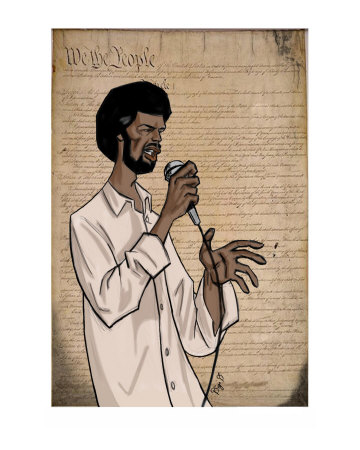Piggie Smalls: Folklore of the streets and the trees.
In this blog I will give my homage to Ong—which could almost sound like a spiritual ohm. Sorry I like the way that sounded. I am chalk full irrelevant things. Oh wait maybe not, I just found a cliché in my writing (chalk full); what does that even mean.
Alright to start this blog off in a proper manner—which I have no notion of proper, for these blogs are all extremely informal—I will state that: after class today, and after finishing Ong’s third chapter in orality and literacy I feel much more appreciative toward rap music, and the oral culture in general.
Hip Hop music is something that is, and is not a part my identity. What makes Hip Hop a part of myself is that distinct African Diaspora sound that intertwines itself in a global psyche—particularly the psyche of those that live in the Americas. Perhaps why this is, and why music in general is so influential on people’s lives. When words are spoken they have direct oral reception, as do musical notes—thus creating more of a collective feeling and more of a real experience that is essential to a society’s conception of itself. Ong in chapter 3 contends that primary orality is much more of a community experience: “Because in its physical constitution as sound, the spoken word proceeds from the human interior and manifests human beings to one another as conscious interiors, as persons the spoken word forms human beings into close-knit groups”.
Pin pointing exactly were Hip Hop is a part of myself can be somewhat complicated. In terms of the broadest perspective, Hip Hop music is appealing to me because I am a young American, a narrower perspective would be that Hip Hop music is appealing because it rises emotions out of me that has the ability to make me feel oppressed, angry and in a sense rebellious, and what makes these feelings memorable is that all of the sounds are put in a metrical form. Hip Hop in my opinion reflects ancient poets and storytellers far more accurately in than the written tradition does. In primary Oral cultures attitude and embodiment are a part of the words being spoken, “were sight situates the observer outside what he views, at a distance, sound pours into the hearer... establishing…a kind of core sensation and existence”. This is extremely relevant to why when travelling to one of our nations metropolitan areas we here vibrant conversations that are both praising and antagonistic; I will use the city of Boston as example. The surviving elements of primary orality are perfect when mentioning this city; Boston is both the rudest and most passionate city in America—need proof—were a Yankee baseball cap at Fenway Park. How this relates to Hip Hop is that urban population tends to have more of an orally based lifestyle, and African Americans have retained much of this primary oral culture that is both representative in a large context, and a smaller context. The larger context being American culture in general and the smaller context being areas like Brooklyn New York that has unique identity within many unique identities. And this is where I am ostracized, for I am a person tainted by literary concepts and abstractions I am a white male, I am not from an urban environment and I do not participate in events that, “try to outdo the other in vilifying the others mother”.
But Piggie Smalls Does,
trust me this is a perfect example:
http://www.youtube.com/watch?v=4hbwdAOogBw

No comments:
Post a Comment